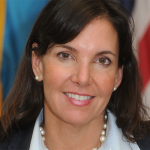Rebecca Cokley, director of the Disability Justice Initiative, writes that students with disabilities could face difficulty in securing accommodations in the wake of the FBI investigation that uncovered wealthy students faking learning disabilities as one way to game the college admissions system. She worries that future students may decline to request accommodations to avoid looking like fakers and that educators may impose more stringent qualifications for accommodations, causing costs to rise.
During an investigation into college admissions fraud and bribery, the FBI discovered students from wealthy families faked learning disabilities to qualify for test accommodations. Families of these students paid as much as $75,000 in bribes to secure diagnoses. Officials responsible for the SAT and ACT defended their efforts to minimize cheating and their accommodations policies as essential to ensure “a fair testing environment.”
President Trump’s recently-released budget proposes cuts to Medicaid and other programs that benefit people with disabilities. Though it maintains public school special education funding unchanged, it cuts spending on state developmental disabilities councils, disability research programs, independent living programs and Special Olympics education initiatives.
Delaware State Auditor Kathy McGuiness found paraprofessionals in the Christina School District were among the top school district and charter school overtime earners for Fiscal Years 2016 and 2017, receiving more than twice the overtime rate paraprofessionals earned in other school districts due to differing interpretations of federal labor law. Much of the Christina paraprofessionals’ overtime work came providing respite services offered through the Delaware Autism Program.
Legislation introduced this week by a bipartisan group of senators would raise the eligibility age for ABLE accounts from 26 to 46. Last year, disability advocates warned that the ABLE program could be unsustainable without changes to the program to substantially increase the number of account holders. According to the National Association of State Treasurers, 390,000 accounts are needed by June 2021 for ABLE programs to achieve “bare bones sustainability,” given the cost of operating the programs. By the end of last year, there were 34,707 ABLE accounts open.





